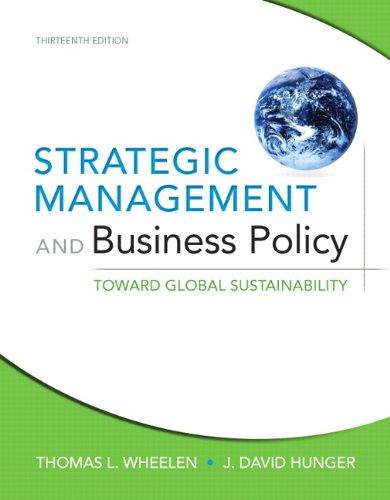On March 14, 2000, Stephen King, the prolific horror writer, published his new book, Riding the Bullet,
Question:
By 2008, HarperCollins and Random House were offering free online book content. Amazon was selling a US$399 Kindle e-book reader for downloadable books costing US$10 each, but Apple CEO Steve Jobs described the Kindle as something that filled no void and would "go nowhere." Sales in electronic trade books increased from US$5.8 million in 2002 to US$20 million in 2006 to US$380 million by 2012.
By 2012. the market for e-books accounted for more than 25% of all revenues in the book selling industry and e-book sales had surpassed sales of hardback books.98 Amazon went on to release numerous versions of the Kindle reader ranging from US$69 to US$499. Amazon steadfastly refused to release sales figures for the Kindle: however. Forrester (a research firm) estimated that sales of the Kindle Fire (its flagship product) had exceeded 5 million between its release in November 2011 and Christmas that same year. Far from going nowhere, the Kindle family was clearly a player in the industry. One of the lightly touched parts of the market is college textbooks. No individual area in the field of publishing seems as good a fit as asking students to buy an e-reader and then download all the material they will need for all of their courses. Rentals and outright purchases would represent a substantial change.99 Consider the following questions as discussion guides:
■ What are the pros and cons of electronic publishing?
■ What is the impact of electronic publishing on the environment?
■ Should newspaper and book publishers completely convert to electronic publishing over paper? (The Wall Street Journal and others publish in both paper and electronic formats. Is this a success?)
■ Would you prefer this textbook and others in an electronic format? How would you prefer to read the book?
■ What business model should publishers use to make money publishing electronically?
■ What business model should publishers use to make money publishing electronically?
Fantastic news! We've Found the answer you've been seeking!
Step by Step Answer:
Related Book For 

Strategic Management And Business Policy Toward Global Sustainability
ISBN: 9780132153225
13th Edition
Authors: Thomas L. Wheelen, J. David Hunger
Question Posted:





